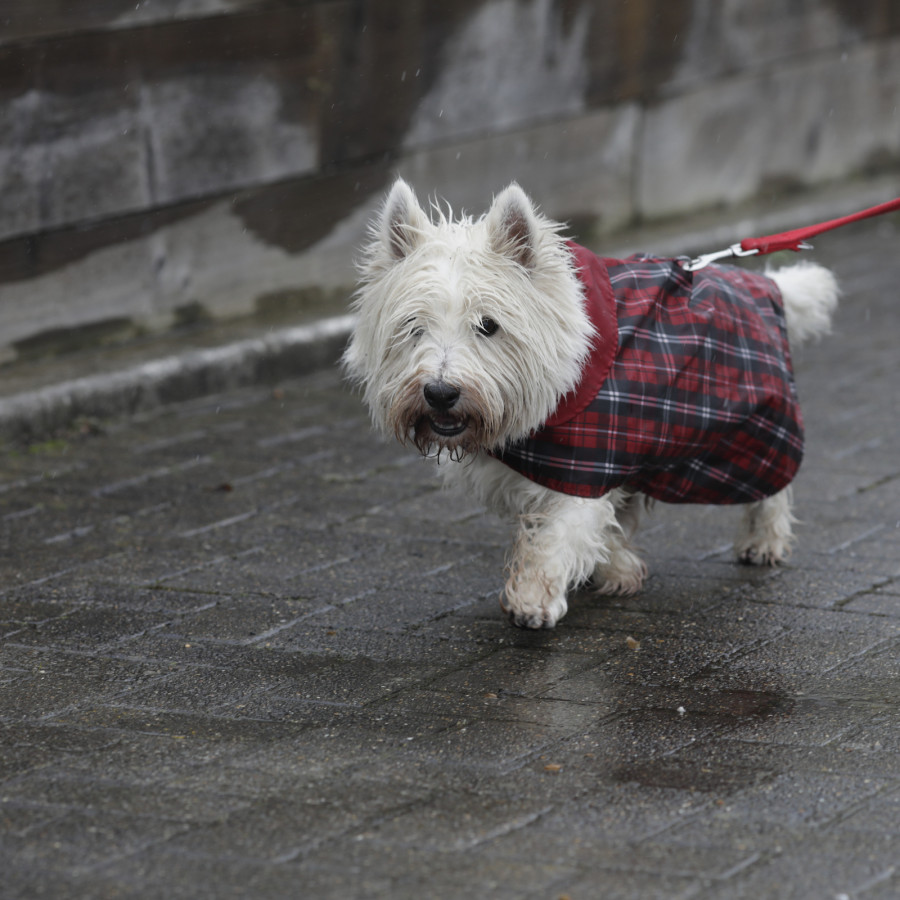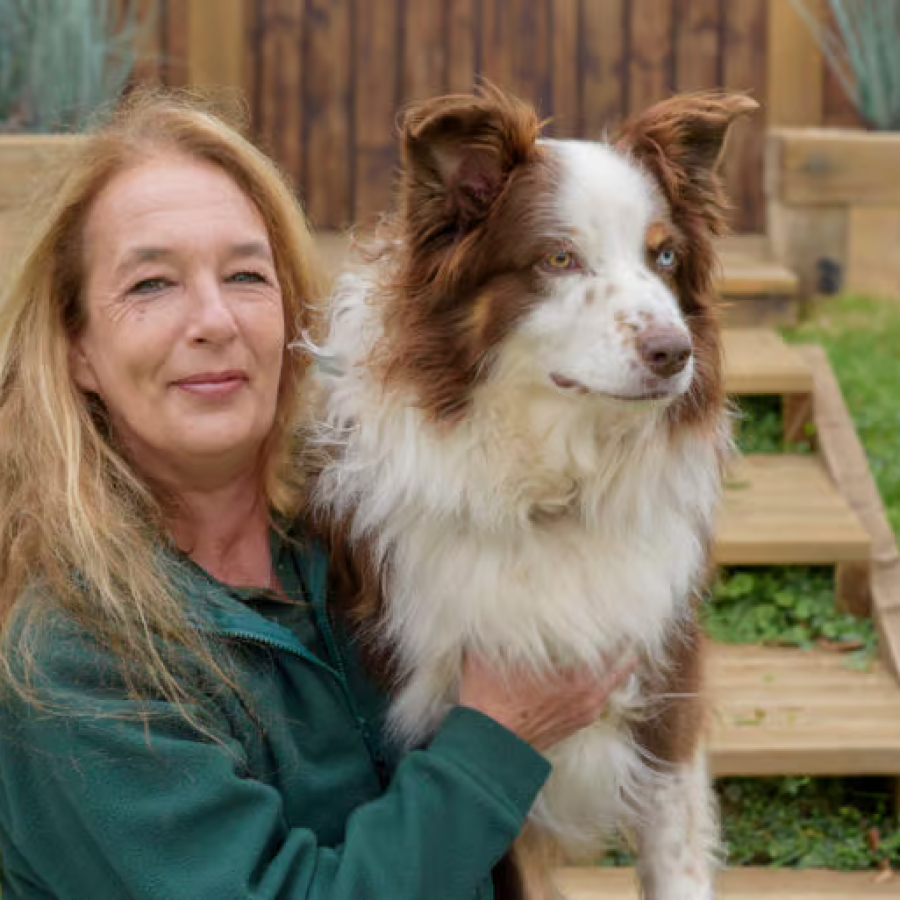
West Highland White Terrier (Westie) Dog Breed
Westies are charming little dogs with lots of energy and plenty of personality.

Westies are charming little dogs with lots of energy and plenty of personality.
West Highland White Terriers (Westies) are charming, confident, and determined little dogs. They’re small but sturdy and great for active people who enjoy games and training. They have a larger-than-life personality in a tiny body and aren’t afraid to have their voice heard! A Westie’s affectionate and playful nature makes them delightful companions.
Westies are lively, outgoing, and super-lovable little dogs. They originate from Scotland and were bred to hunt animals underground and places their owners can’t get to. For this reason, they’re naturally feisty as well as being strong-willed, independent, and driven. They can be quite mischievous when they’re feeling energetic. You’ll see them ‘chatting’ when they don’t get their way or digging under fences to find their own fun if they’re bored.
Their alert nature means they’re always tuned in to any intruders or interesting things outside. Even with their working roots, Westies are great companion dogs for active families. Clever, confident, and curious, they enjoy long walks exploring nature and taking part in activities that challenge their minds, like puzzle toys and fun training sessions.
Disclaimer
While these breed traits give a general idea of what to expect from a specific type of dog, it's important to remember that every dog is unique. Just like people, each dog comes with their own distinct personality, quirks, and characteristics!

Westies can make excellent family dogs with their affectionate nature and playful personalities. While they are good with children and small, they’re still pretty sturdy and heavy enough to knock them down if they get excited. You should always watch your dog closely around kids and don’t leave them in the same room together unattended.
Westies usually get along well with other dogs if they’ve been introduced from a young age. When it comes to cats though, it's a different story. Unless they've grown up together as puppies and kittens, trusting a Westie around a cat can be risky. Even if they’ve been raised with a cat, they’re naturally inclined to chase small animals for fun, which isn’t ideal in a home setting. If you have other small pets in the home, take extra care around their enclosures and keep them out of view of your Westie.
This playful breed loves games, especially if they link to their terrier roots. Think of games like sniffing, hunting, chasing, tugging, and digging.
Playtime is essential for their wellbeing, keeping them happy and helping to burn off excess energy. Whether it’s a game of fetch or interactive toys, Westies are always up for some fun.
Westies aren’t afraid to make their voice heard, but they aren’t especially barky or vocal dogs. They’ll certainly let you know if anything interesting or unusual is going on, but without proper training, they’ll even alert you to a leaf or passer-by rather than something you need to know about!
They may ‘chat’ with you, especially if they want something (or don’t want to do something you’ve asked them to!). But with proper training and socialisation, you should be able to easily manage and prevent excessive barking.
Without proper training, socialisation, and physical and mental exercise, all dogs can develop behavioural issues.
The most common behaviour problems you may find in a Westie are related to their terrier instincts. Digging is natural for them, but if this isn’t controlled with a suitable outlet, you may find them digging in the garden, carpet, or under fences.
Westies can be very motivated to chase, sniff, and explore when out and about. If they spot a small animal like a squirrel or cat, they’ll find it hard to focus on you and won’t be as inclined to come back when called.
If not properly trained from a young age, Westies can become very barky, especially when alerted to something. They also struggle with being alone and may bark, whine, or destroy things when you’re gone.
A house with a secure garden is ideal for a busy Westie to burn off their energy and explore in a safe, secure space. However, they can adapt to living in a flat if they’re taken outside for exercise.
Westies thrive in homes where they get plenty of attention, exercise, and brain games to keep them satisfied and content – otherwise, they may become ‘self-employed’ and come up with their own jobs like barking at passers-by or digging up your garden!
Westies’ high prey drive means they may not get along well with small pets like hamsters or rabbits. They can usually do well with other dogs and even cats if properly socialised from a young age.
Westies need around 40 to 60 minutes of exercise each day. This should ideally include sniffy walks in nature alongside play and training sessions to keep them physically fit and mentally stimulated.
Westies were bred to hunt small animals like rats, foxes, badgers, and otters, so activities that let them use these natural instincts are very important to keep them happy. Try to incorporate things like tug-of-war, chase games, and digging games. They love eating their food in interesting ways like from puzzle feeders or through training, rather than just from a boring bowl. You can also scatter their food around the garden or hide it around the house for them to sniff out.
If you’re interested in more activity with your Westie, consider hiking, agility, hoopers, and scent work. These are all great ways to get involved in what your dog loves!
All puppies need to learn how to be around people, pets, and other dogs, calmly and politely (known as socialisation). They also need help to feel calm, comfortable, and confident in everyday situations like travelling, the sound of traffic, and being in busy places (known as habituation). This is essential to prevent tricky behavioural problems in the future, and you'll be off to a great start with your ongoing training.
Westies are quite easy to train. They're intelligent, eager to please, and can learn quickly, but might choose to ignore commands if they don’t see the benefit. Like all terriers, they were bred to be able to think for themselves and make decisions without checking in with their owner first. Because they’re so independent, they benefit from reward-based training using their favourite treats or toys.
For Westies, the five most common behavioural issues to watch out for are:
- Excessive barking
- Digging
- Resource guarding
- Lead pulling
- Chasing small animals
Westies have a wiry coat that requires brushing a few times a week. A slicker or a pin brush are the best tools for the job of keeping loose hair and dirt at bay, and to prevent matting in longer sections. You should also comb through their fur to make sure they’re tangle-free. Westies also need professional grooming every four to six weeks to maintain their signature look through hand-stripping or clipping.
Regular baths, nail trimming, ear cleaning, and dental care are also important for your dog’s overall well-being.
I’ve got plenty of energy to burn! I need lots of walks and some playtime outdoors. I love to chase, dig, and explore, it keeps me active and out of trouble.
I was bred to hunt and dig, so puzzle toys and scent games allow me to use my brain and nose, making me one happy terrier!
Training needs to be fun and interesting for me! I’m a natural digger and love to chase, so give me activities where I can show you what I can do.
Initial costs of getting a Westie include the purchase price between £500 to £1,500, along with all the basic equipment you need costing up to £100. Don’t forget toys and grooming tools which can cost an extra £30 to £50.
There are other ongoing costs to factor into your budget too, including basic training classes, pet insurance, vet bills, grooming, food and services like dog sitting and walking.
Take our quiz to discover which breed is right for you
Take our quizPlease call our pet support line on 0300 303 9333 (7 days a week – 8.30am - 4pm)